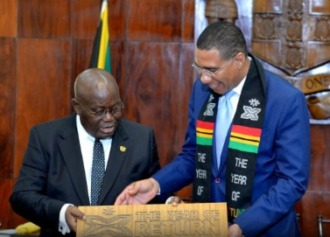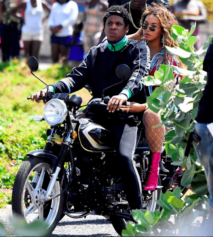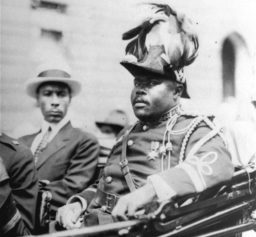For decades, the sound of Jamaica has been reggae, the infectious, uniquely syncopated music that transformed the small Caribbean island into a cultural powerhouse.
But the genre’s success has taken it far beyond its roots, and now many in Jamaica worry that reggae-lovers abroad are forgetting the motherland where it was born.
“Reggae was given to the world by Jamaica so nobody can or ever should discourage anyone overseas from making this music. But we think there should be acknowledgment that reggae was created in Jamaica,” said Michael “Ibo” Cooper, a musician who is chairman of the Jamaica Reggae Industry Association.
Around the world, music festivals celebrating the sounds made famous by reggae patron saint Bob Marley and followers who developed the faster, brasher derivative of dancehall are more likely to be headlined by bands from places like California or France than by native-born Jamaicans. Aside from albums by the late Marley or his progeny, few of the top-selling reggae CDs or downloads come from Jamaican artists.
To get a stronger foothold in the information age, Jamaican officials and reggae industry insiders are brainstorming ways to better capitalize on Jamaica’s exuberant music culture and help protect what some claim is local intellectual property. After years of only piecemeal support, the government increasingly is viewing reggae and other cultural enterprises as a hoped-for economic engine on the island.
Officials are hashing over the creation of a certification mark to designate “authentic reggae” — a sort of “Good Housekeeping Seal” — to encourage the use of Jamaican musicians, producers and merchandise. They also hope to defend Jamaican reggae by having the U.N.’s culture organization add it to a global list of “intangible cultural heritage ” such as Argentina’s tango and China’s Peking opera. The Paris-based agency says the island’s government has yet to apply for inclusion on the list of more than 280 cultural traditions.
Rob Bowman, a music professor from Canada’s York University who has researched intellectual property and Jamaican music, said that while population numbers mean reggae’s biggest markets always will be overseas there’s no reason why more revenue streams from foreign commerce shouldn’t flow back to Jamaica.
“With few exceptions, these styles of music cannot be authentically replicated by non-Jamaicans. As such, these styles of music represent intellectual property that is, for all intents and purposes, already a part of Jamaica’s branding,” Bowman asserts in a World Intellectual Property Organization consultancy report for Jamaica.
Read more at The Province



